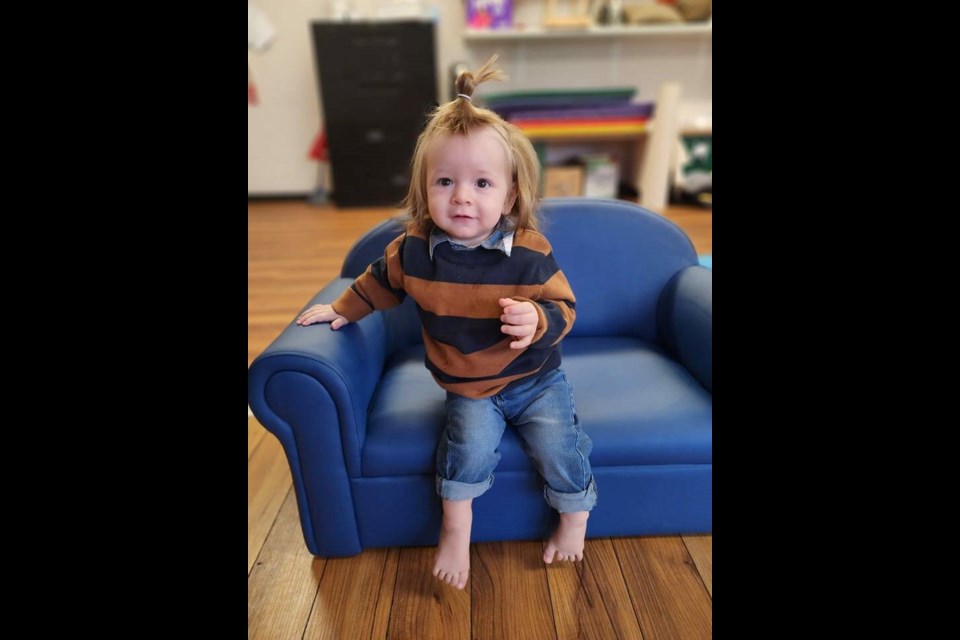A Campbell River couple has won a challenge to get their son a birth certificate that uses Kwakwala characters.
λugʷaləs K’ala’ask Shaw was born in January 2022 and as of last month has a birth certificate that reflects his Indigenous name, pronounced Glu-gwa-lusis in Kwakwala, the language of the Liǧwiłdax̌w people.
Parents are now able to register Indigenous names with a diacritical marker on a birth certificate with Vital Statistics, according to a Health Ministry spokesperson. However, they must sign a waiver to understand the challenges that this may pose for registering for other government services provincially and federally.
In future, the ability to claim names will be open to all Indigenous peoples, including older individuals.
When parents Crystal A.J. Smith and Raymond Taylor Shaw submitted their son’s name to Vital Statistics last year, they were told only “traditional” characters could be used. The Vital Statistics Agency only allowed Latin alphabetic letters, a standard set of French accents, apostrophes, hyphens and a period. Numbers, brackets, slashes and other symbols were not accepted.
Vital Statistics suggested using alternate spellings such as Aug’walas or Augwalas, but that was not an acceptable option for Smith. “If you change the spelling, you change the meaning.”
Shaw, a traditional carver, is Liǧwiłdax̌w and a member of the Wei Wai Kum First Nation in Campbell River. Smith, who is Ts’msyen and Haisla, was adopted into the Heiltsuk Nation.
Their child’s first name has special meaning related to Shaw’s traditional territory near Sayward, and his second name, K’ala’ask, means “river” in Sm’algyax.
The parents filed a petition in B.C. Supreme Court in October arguing they faced a “significant burden and emotional toll” when they felt forced, out of financial hardship, to register their son’s birth using only his last name — Baby Shaw — in order to access benefits that are conditional on an approved birth registration.
Smith, in a phone interview on Wednesday, said the change is “a monumental moment” but wants all Indigenous people in the province benefit.
“I just feel like I can’t celebrate until everyone else is able to do the same — all Indigenous mothers, all those others who changed their name,” she said. “Until they’re able to, then we can’t really celebrate.
The couple say they will head back to court in six months unless the ability to register Indigenous names is available to all Indigenous people in B.C.
“This is something that should have been done a long long time ago,” Smith said, noting B.C. has the highest number of Indigenous languages and dialects in the country.
The government’s plan to implement the United Nations Declaration on the Rights of Indigenous Peoples includes adopting an inclusive digital font that allows for Indigenous languages to be included in official records.
Health Minister Adrian Dix said it is very important “that we get it right, that the birth certificate works with other government systems, and that part is taking some time.”
“Our position hasn’t changed,” he said. “We think that everyone should be able to have their name accurately reflected on their birth certificate, and we’re doing the work on that.”
Smith believes the couple’s petition “put a fire under” the province to act faster — and it might not be their last court action. She said she does not imagine she will be able to get her son a passport, for example, using Kwakwala characters.
“We are ready and willing to take the federal government to court over it,” she said.
>>> To comment on this article, write a letter to the editor: [email protected]



